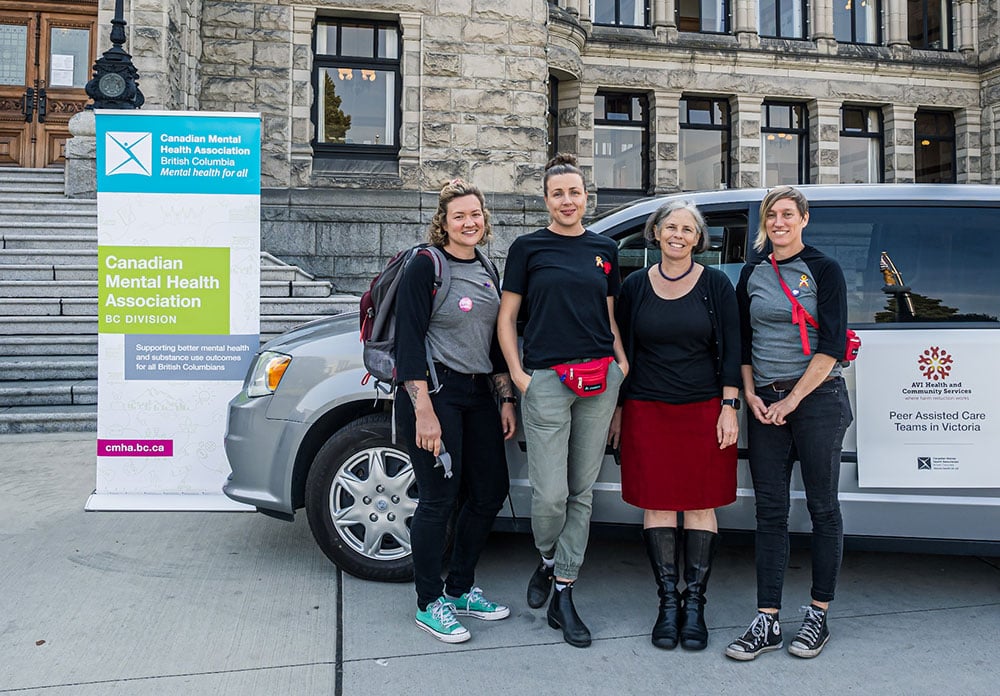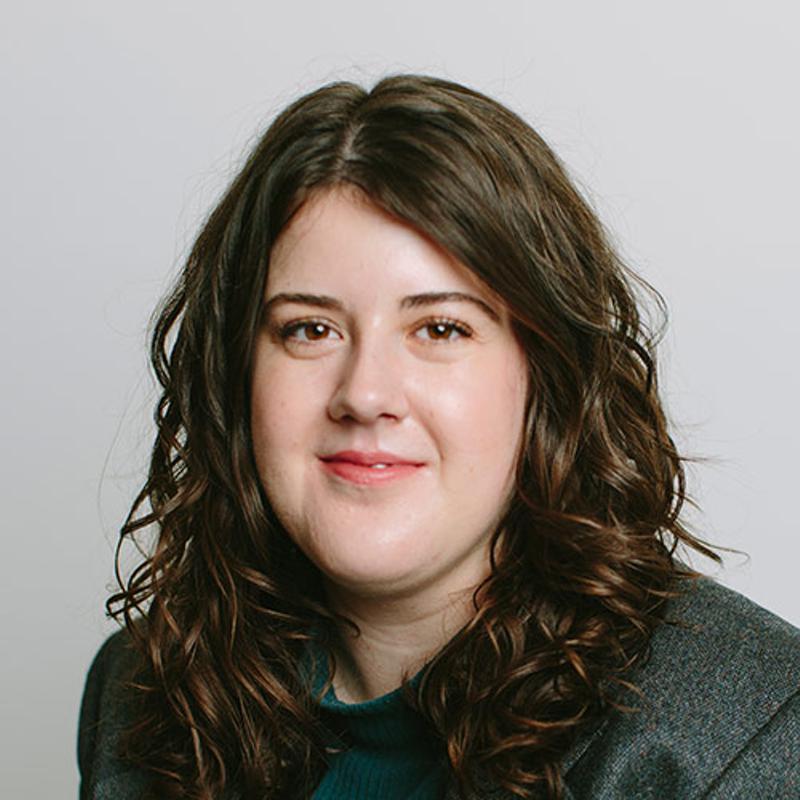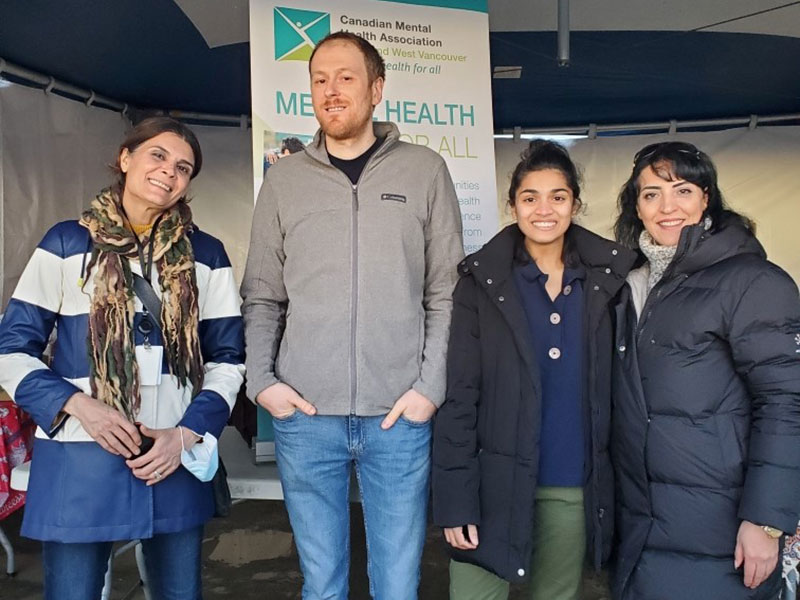Fleeing war and instability in Iran in 1995, Nooshin Gallehdari landed in Vancouver a teenage refugee, alone. She had no friends or family in Canada. There was no one waiting with a “welcome home” sign or warm coat.
Gallehdari faced the challenges of learning English, finding a job and making community in Vancouver on her own.
Within months she found herself thinking about suicide. Over the next few years she experienced homelessness and being arrested by police again and again as she tried to get by.
“I struggled for a long time to help myself,” she said in an interview with The Tyee. “I had a counsellor from time to time, but it is hard to connect with someone when you’re traumatized and they pretend you are fixed.”
Nearly 30 years later, Gallehdari is a peer support worker for a North Shore civilian mental health team that is becoming the model for a new type of crisis response across B.C.
In its first year operating, the North Shore Peer Assisted Care Team, or PACT, has responded to more than 750 calls and texts from people in need of mental health or substance use support. Teams are set to launch soon in New Westminster and Victoria.
Eby’s expansion announcement
On Sunday, Premier David Eby announced the province would create 12 new PACTs across B.C., two of which would be First Nations-led, as part of his flagship Safer Communities Action Plan.
“These peer-assisted teams intervene when people are in mental health crises in our streets, freeing up police to focus on crime instead of social services,” Eby said from Queen Elizabeth Park.
The program, run by the Canadian Mental Health Association in B.C., pairs a peer support worker who has living experience of mental health issues with a trained mental health professional to attend to people in distress. The teams can help by de-escalating the situation, connecting the caller to resources or simply offering a listening ear.
And they already show promising signs of diverting people in crisis from the emergency room and reducing the involvement of police in mental health calls.
Gallehdari says she is now the person who would have meant everything to have when she was struggling.
“It would have stopped me from being homeless, from attempting suicide and from getting involved with the police,” she said. “And from facing that very vulnerable situation without someone who understands.”
Gallehdari eventually found more stability by connecting with the Iranian community in North Vancouver for support and beginning to work in the service industry. Before joining PACT, she spent 15 years volunteering to help women and 2SLGBTQ+ refugees and newcomers find work.
“It was healing to help others like me,” Gallehdari said.
Sunday’s announcement shows there is political will to build civilian-led health responses that help keep people well and in their communities, said Jonathan Morris, CEO of CMHA BC.
Police are not well-trained in mental health crisis response, and many people in mental distress have been injured or killed by police responses, particularly disabled, Black, Indigenous and other racialized people.
And as more and more people are unable to access stretched preventative supports, the number of people admitted to hospital involuntarily for mental health treatment has more than doubled since 2007.
“We need a sufficient and well-integrated mental health and crisis care system, to support a shift away from police being the default responder,” said Morris, noting that police will continue to play a role until such a system exists.
“There’s a sense of hope for meaningful change right now.”

Shaely Ritchey, a registered nurse who advised the creation of the forthcoming PACT in Victoria, says peer-support from people who have lived experience is a transformative response to mental health calls.
When you are contemplating suicide or self-harm, it is very difficult to speak to someone who hasn’t been in that same place, they explained. If police are present, that can be intimidating and make it difficult for the person to relax or feel safe.
Ritchey has dealt with suicidal thoughts and mental health crises in the past, but even calls to well-resourced crisis lines have been damaging when they didn’t feel heard or understood.
“The comfort and non-judgement from peers is so sacred and so needed,” they said.
The North Shore PACT operates from 6 p.m. to midnight Thursday to Sunday, with 10 staff and one clinical supervisor. Morris hopes funding and staff will be secured soon so the PACT can operate 24-7.
Teams offer support by phone, text or in person in English and Farsi. The team has seen demand for their services grow markedly, particularly among Farsi-speakers as conflict and human rights violations in Iran have escalated.
“It shows we are creating a bridge between the organization and the community, and people are trusting us,” said Gallehdari.
Culturally safe, trauma-informed care is hugely important, she added, especially when individuals may face stigma or shame for asking for help. Non-police responses also reduce concerns about losing employment, relationships or housing if someone is apprehended or arrested.
‘Not about fixing people’
The teams in Victoria and New Westminster have taken their time to ensure their launch is as smooth as possible, Ritchey said. But the work can’t end at a single PACT or even 12.
“If PACT exists but the only option for care is to bring people to hospital, then people are still ending up in traumatic environments,” said Ritchey. “We need to be trying to support people as much as possible to stay in the community and to protect their autonomy.”
It is challenging to keep up with the demand for support, says Gallehdari. As the weather cools there are fewer and fewer places open late to meet people who don’t wish to speak at home. Sometimes there is simply no other resource she can refer someone to, and she and her colleagues have their own health to attend to as well.
Yet she finds comfort in the simple things that can make a world of difference, like helping someone without a phone make a call to a shelter or offering them a gift card to the grocery store.
“It’s not about fixing people, it’s about connecting them to resources to take them out of that vulnerability so they can make choices for themselves and grow into their own strengths,” said Gallehdari. “That is what gives me joy.” ![]()
Read more: Health, Rights + Justice

















Tyee Commenting Guidelines
Comments that violate guidelines risk being deleted, and violations may result in a temporary or permanent user ban. Maintain the spirit of good conversation to stay in the discussion.
*Please note The Tyee is not a forum for spreading misinformation about COVID-19, denying its existence or minimizing its risk to public health.
Do:
Do not: